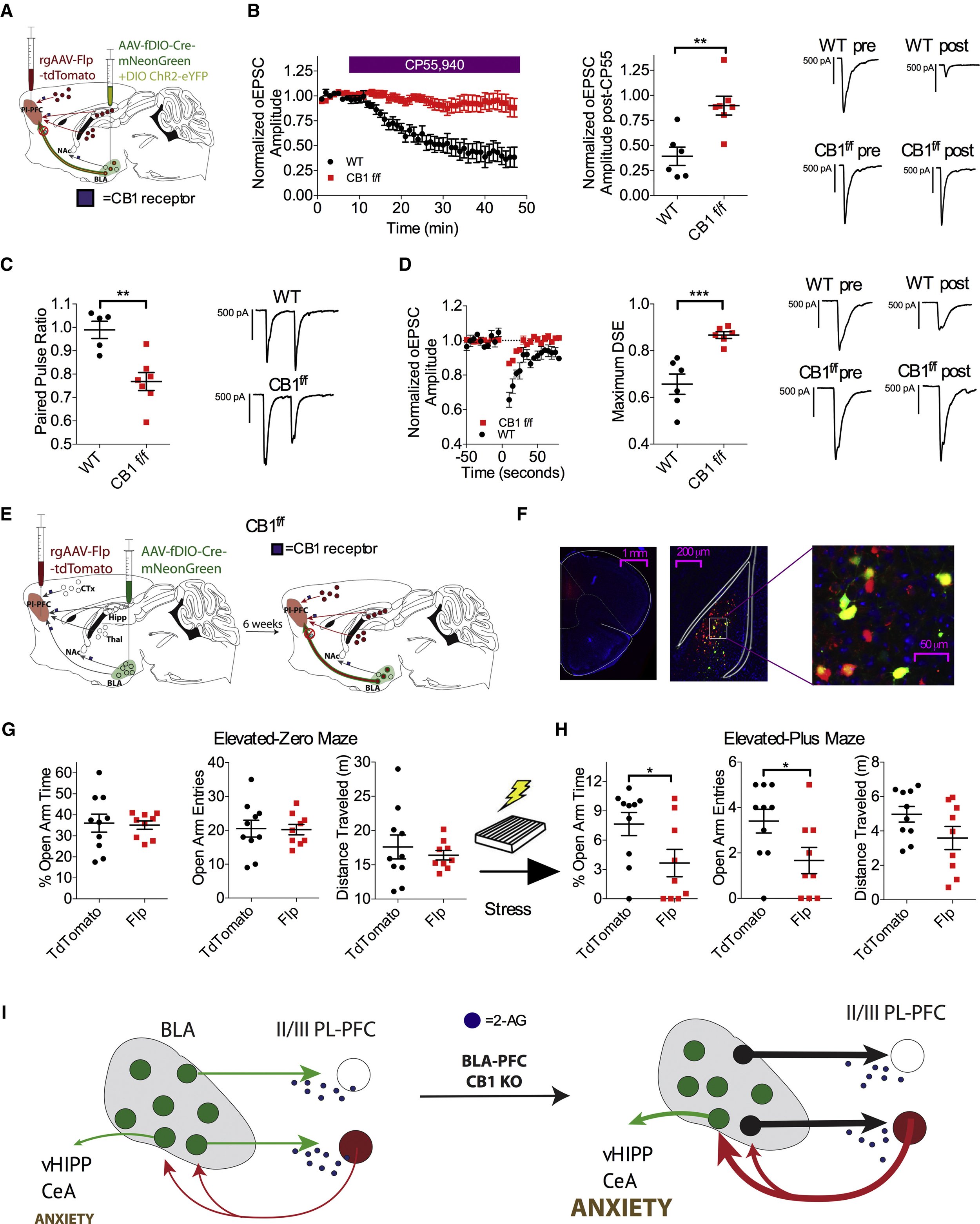Current Projects
Endocannabinoid modulation of stress responsivity
We aim to understand the role of the endocannabinoid 2-arachidonoylglycerol in the regulation of behavioral, endocrine, and synaptic adaptations induced by stress. We use a variety of approaches including electrophysiology, optogenetics, calcium imaging, behavioral pharmacology and genetics combined with mouse behavior to address these questions. Elucidating how 2-AG signaling adapts to stress could reveal novel endocannabinoid-based approaches to the treatment of stress-relates psychiatric disorders.
Representative Publications:
Marcus DJ, Bedse G, Gaulden AD, Ryan JD, Kondev V, Winters ND, Rosas-Vidal LE, Altemus M, Mackie K, Lee FS, Delpire E, Patel S. (2019), Endocannabinoid Signaling Collapse Mediates Stress-Induced Amygdalo-Cortical Strengthening. Neuron, 105(6): 1062-1076.
Bluett, R.J., Baldi, R., Haymer, A., Hartley, N.D., Marcus, D., Mardam-Bey, R., Shonesy, B.C., Uddin, J., Marnett, L.J., Colbran, R.J., Winder D.G., Patel, S. (2017), Endocannabinoid Signaling Modulates Susceptibility to Traumatic Stress Exposure. Nature Communications, Mar 28;8:14782
Experience-dependent plasticity in amygdala circuits
We are interested in how amygdala circuits and distinct cell types are functionally organized to orchestrate behavioral responses to stress and how these circuits adapt in response to stress exposure. We utilize optogenetics, chemogenetics, electrophysiology and models of Pavlovian fear learning and extinction to address these questions.
Representative Publications:
Hartley, N.D., Gaulden A.G., Baldi, R., Winters, N., Salimando G., Rosas-Vidal, L.E., Jamison, A.J., Winder D.G., Patel S., (2019), Dynamic remodeling of a basolateral-to-central amygdala glutamatergic circuit across fear states. Nature Neuroscience, 22(12):2000-2012.
Endocannabinoid mechanisms in the pathophysiology of alcohol use disorders
We are interested in how dysregulation in endocannabinoid signaling contributes to various aspects of alcohol use disorder pathophysiology including compulsive intake and withdrawal. Elucidating the role endocannabinoid signaling plays in the pathogenesis of alcohol use disorders could reveal novel approaches to the treatment of alcohol-related disorders. We utilize preclinical models of alcohol consumption combined with behavioral pharmacology, electrophysiology and circuit-level manipulations to study the role of endocannabinoid signaling in alcohol-related disorders.
Representative Publications:
Bedse, D. Winters, N.D., Astafyev, A., Patrick, T.A., Mahajan, V.R., Uddin, J., Centanni, S.W., Samuels, D.C., Marnett, L.J., Winder, D.G., Patel, S. (2021), Targeting Diacylglycerol Lipase to Reduce Alcohol Consumption. Journal of Clinical Investigation, 131(17):e146861.
Bedse, G., Centanni, S., Winder D.G., Patel, S. (2019), Endocannabinoid Signaling in the Extended Amygdala: Implications for the pathophysiology and treatment of alcohol use disorder. Alcoholism: Clinical and Experimental Research, 43(10):2014-2027.







